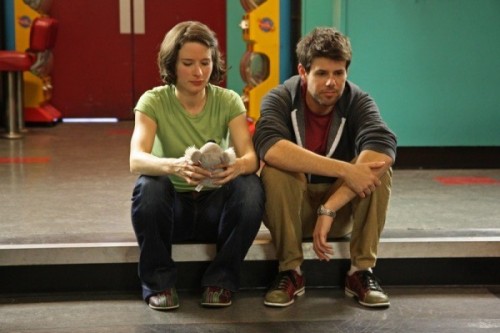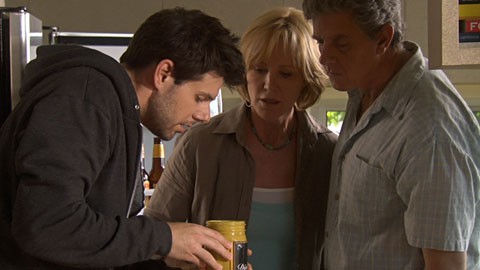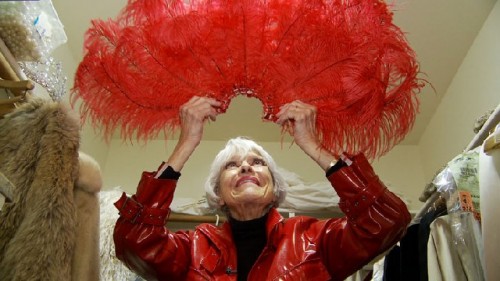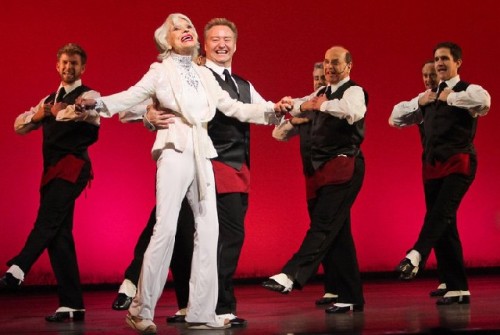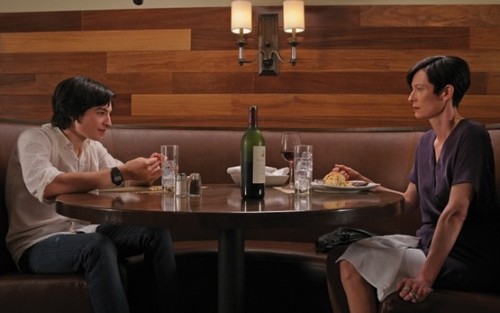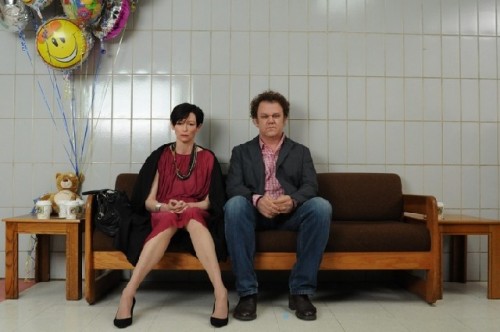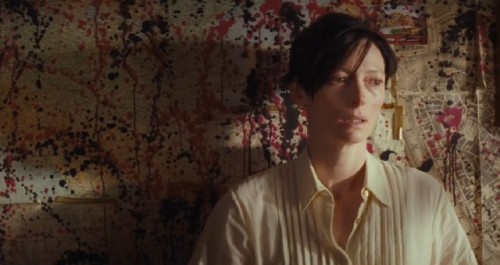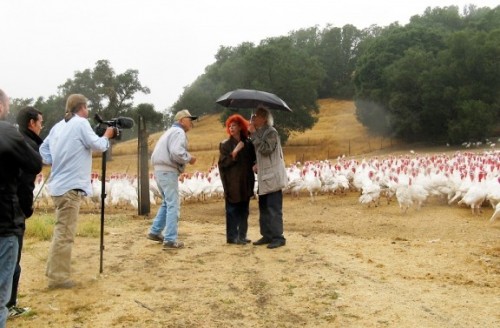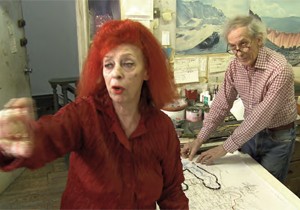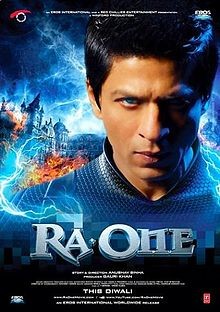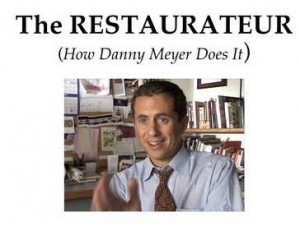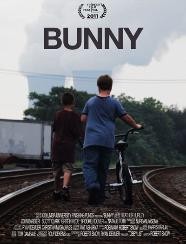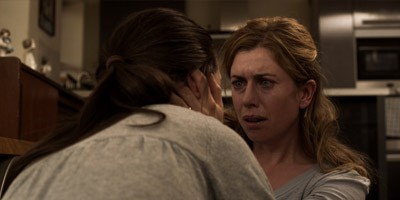Short Films at Williamstown Film Festival 2011
An Overview and 21 Shorts
By: Astrid Hiemer - Oct 31, 2011
The Williamstown Film Festival (WFF) just finished on a very snowy note. Who would have thought that a Nor Easter in October would almost white out the final two presentations?! First, a well crafted documentary film about the real and stage life of Carol Channing by Dori Berinstein. Carol Channing: Larger Than Life chronicles the actress, performer and singer throughout her life and, at 90, she is still a delight to see and hear. Then, A Salute to Sidney Lumet would close the Festival in the evening of October 29. We were not present, just could not drive the distance in the snow to celebrate Lumet’s films and the Festival Director Steve Lawson along with all, who have worked hard on this exquisite gem.
WFF collaborated with Mass MoCA of North Adams and screened on 10/22 We Need to Talk About Kevin by director Lynne Ramsay. The film with actors: Tilda Swinton, John C. Reilly, and Ezra Miller, made waves at this year’s Cannes Film Festival. It presents an ambiguous and multi layered plot, a tough film, which we continued to discuss long after viewing it. Never Stand Still is an homage to the Berkshires international dance center, Jacob’s Pillow. The Hunter Center at MassMoCA was again filled with 400 viewers. – And, The Salute to Sidney Lumet was a collaboration with the Sterling and Francine Clark Art Institute, Williamstown.
This small festival screens one film at a time, so that the entire audience can take in a feature and hear film makers and actors present and illuminate their works in close proximity. The enduring collaboration of 13 years between WFF and Images Cinema, a small, non-profit film house in Williamstown, was again home for the festival. Director of Images Cinema, Sandra Thomas, and staff hosted this event with grace, warmth and attention to detail.
We learned much about a Bollywood sci-fi film: Ra.One from Jeff Kleiser of Synthespian Studios. He and his Berkshire based company were hired by an Indian and British production to bring to life 120 of the film’s most complex scenes. The staff of Synthespian Studios spent eight exhausting months on the project and actually hired special effects masters in the US and Europe to pull off this feat. We learned that in addition 800 computer specialists in India were also employed by an Indian special effects company to ‘clean’ the film’s many action scenes frame by frame. The film had recent premieres in Mumbai, London and Toronto and is currently released in limited markets. We will have to see the film, when it’s shown in the Berkshires.
The Restaurateur, Caris’ Peace, and The Running Fence Revisited are three other features worth seeing again. I first encountered a film about Christo and Jeanne-Claude’s large scale environmental work, Valley Curtain, during an MIT/CAVS conference, which was titled ARTTRANSITION in 1975. I realized then the potential for lasting human impact on people, who even by chance were connected to the process or work and how it translates to the viewer. The Running Fence Revisited explores to a large extent that premise, thirty years after the project of a 24-mile-long fabric fence, which cut through Sonoma and Marine Counties in California, ended. The film was commissioned by the Smithsonian American Art Museum and filmmaker Wolfram Hissen produced a compelling motion picture, in its purest meaning.
Caris’ Peace ends with a one woman show, written and performed by Caris Corfman. A nearly impossible feat! Corfman had undergone brain surgeries and had lost her short term memory. She was only able to speak her lines while relying on cue cards, but her acting ability was not lost. She had been a Broadway actress, a film actress, and needed to perform again to combat severe depression and regain her meaning of life. Only with the help of all, who supported her existence post surgery, was she able to bring her life experiences and wisdom to an audience in New York. Filmmakers Gaylen Ross and Rebecca Nelson chronicle thoughtfully and beautifully Caris Corfman’s journey.
The Restaurateur is quite another film. Danny Meyer owns several fine food restaurants in New York and we follow the simultaneous construction of two: ‘Tabla’ and ‘Eleven Madison Park.’ It was a crazy, but necessary process, since a huge raw space had to be broken up. Tabla became an Indian restaurant on two levels and Eleven Madison Park ultimately a four star restaurant. The viewer learns much about what it takes to create restaurants and maintain and improve them over many years. Roger Sherman, the director and producer, shot the original footage in the 1990s and finished the film in 2010, after Eleven Madison Park was elevated to a four star restaurant. A very fine food film !
WFF screened a total of 21 short films this year. When it’s a mediocre film, it will be over soon. But when the short film is excellent, the subject or point of view projects a bon-bon: Short and sweet, bitter sweet, funny, strange, powerful or otherwise. Under the slot, ‘The Strange Behavior,’ six Shorts were shown at 11:30 pm until 1 am one night without us, so we do not weigh in here on behalf of those films. It must be said though, that the late film slot also found it's audience.
Following are a few shorts, which we gave the highest ranking, a five with stars:
Bunny (12 minutes)
Director: Robert Snow
Two adolescent boys meet at a field, where the rough kid wants to hold the other boy’s rabbit but is rejected. The boy with the bunny runs home and returns his pet to the rabbit cage, outside of his house on the lawn. The next day he finds the cage smashed and Bunny gone. Of course, the rough boy is implicated in the theft and Bunny’s owner and another friend set out to find and retrieve the rabbit. They actually walk along the ‘proverbial tracks’ to the kid’s home, who lives on ‘the other side of the tracks.’ After some trials they enter the rough kid’s home, find Bunny, but get caught by the mother, who berates them and her son. She wants to know, whether her son stole the rabbit; she’s scary! She’ll punish her son badly! Bunny’s owner, now with first hand insight into the rough boy’s home life, denies it and hands Bunny back to the boy. Finally, the two friends are on their way back to ‘the better side of the tracks.’
The story is beautifully and deftly told with insights into early life experiences and the dilemma for a young boy: "Do I want to take my Bunny back or be responsible for a terrible beating by a terrible mother?"
The Heist (12 minutes)
Director: Thomas Hefferon
Three dumb thieves resolve to rob a bank, while discussing the details in the get away car. One of them insists that he would demand, that a young woman among their future hostages has to undress, to instill a fear factor. When they walk up to the bank in their ski masks, it is closed ! What to do, while their adrenalin is still pumping? They rob a chicken grill, walk away with bags full of hot chicken and the sales girl is left behind – naked and mad.
What a hoot of a Short ! It is thoroughly entertaining; the thieves are wonderfully dumb. It is hard to believe that the director, Thomas Hefferon, also submitted the short film Switch, which will be discussed later in the article.
The Hunter and The Swan Discuss Their Meeting (8 minutes)
Director: Emily Carmichael
We watch a scene, along with the Hunter, of bathing and carousing Swan Maidens. They had left their feather suits on the bank of the river, then dress and fly away. The scene repeats itself until one evening, when the Hunter, holding a feather suit in his hands, prevents one of the Swan Maidens to fly with the group. She follows him home.
In the next scene two couples discuss their first meeting: The Swan Woman, still dressed in swan-white, wants to know how the Hunter was certain that the garment he chose was hers. He desperately tries to explain that their encounter was more than a chance meeting. She does not believe him. Vaguely, we see and hear the sound of flapping wings; she flew away! And the other couple, befuddled like the viewer, experiences a let down.
The moment and recognition of the flapping wings was pure delight! The fantastic story turned to real life and back to fantasy is effectively and beautifully told.
Love & Other Unstable States of Matter (24 minutes)
Director: David Marmor
A now common story of a young man still living at home, beyond his college years, and working on technology in his parent’s garage. He is also involved with a slightly older and more mature woman, who wants to break off their relationship. It so happens, that he creates by mathematical error ‘a small black hole,’ which, at this point still fits into a bottle of mayonnaise. The black hole will exponentially grow and pull all life on earth into the hole, unless he manages to stop it fast. Young man and lover drive to a bowling alley. He had mathematically determined that a bowling ball at that point will fit exactly into the black hole. Only if inserted at the correct moment, will the black hole stop from growing larger and cease to exist. Yes, he manages to push the bowling ball into a paint bucket and black hole – and saves the world !
David Marmor, present at the screening, explained that the sophisticated sci-fi-scenes were only possible through barter. He owned a domain name, which the production company wanted to acquire. Marmor spoke of the tenacity, with which some films shown here can only be finished and offered for distribution.
Penguin Lament (6 minutes)
Director: Sandra Boynton
A song, a dancer and singer of the song, and penguin drawings and moving stills fill this film with great fun!
Sandra Boynton also introduced one day earlier Be Like A Duck, a five minute long film, which is less successful. She was witty and assured the audience, that making films is simply fun.
Switch (8minutes)
Director: Thomas Hefferon
A young woman lies in a coma or cataonic vegetative state. She is tirelessly cared for by her mother. The man, who caused the car accident two years ago is the voice of the film. He has parked near the home of his victim before; this time, he is holding an envelope filled with money. He steps outside of the car, standing in the street and looks up to the apartment, where he can see his victim. The young woman is still in a coma, standing in front of a large window. Her mother walks with her daily and had placed her there, refusing to believe that she will not awake again. In fact, the young woman looks down, recognized the other car driver and collapses in a heap and moans. She woke up! And the man in the street was hit by a car and was killed.
Hefferon tackles a serious subject with tact, a sense of justice and imagination. Coma patients do not usually walk and stand by themselves. As in all films, which are here presented, the director has worked with fine actors.
Pentecost (11 minutes)
Director: Peter McDonald
Being an altar boy is no laughing matter! The father is seriously angry with his son, for causing a problem during the last time at the altar and grounds the boy, who loves soccer. Several boys receive a serious talking to from the parish priest before a mass, which the area bishop will attend. Our soccer lover is the only altar boy, who can handle the incense cup well and receives one more opportunity to prove his worth at church and if he succeeds, he would become a regular at Sunday sermons, also the time to play soccer. The mass is nearly finished without and incident. The boy’s father reminds him angrily that the mass is not yet over. A minute later the boy kicks the incense cup, like a soccer ball, into the direction of the bishop and priests, who are leaving the church.
The film ends with the incense cup in mid air. The young actor as the boy is just wonderful. He loves soccer much more than mass and will have to endure his father’s wrath.
McDonald builds the tension in the film slowly and releases the viewer with a perfect kick! Well done!
Touch (13 minutes)
Director: Jen McGowan
A lonely woman on a subway platform lets a train go by. Another, younger woman arrives and starts to chat with her and soon tells her, why she’s on her way into town. She talks and talks, but also remarks that she noticed the sadness in the other woman’s face and eyes. It is the first time that anyone has spoken to the first woman in all the years that she has taken the train. The women connect as human beings and soon, the young woman learns that the other one had tried to find the courage to throw herself under the train. “You must not do that, what a mess! And I would be late for my interview. Promise me, that you will not do that! Promise me….”
Always talk to strangers (if you want to save a life) - is the motto in the festival brochure. The sadness and world weariness is palpable, while watching the film and the nervous chatter also annoying, until the viewer finds out that the sad woman was contemplating suicide. The film leads us on an emotional roller coaster in a serious matter. Well done !
The Christopher & Dana Reeve Award, The Short Film Award, was given to Love & Other Unstable States of Matter and director David Marmor. It received the highest audience rating during the two weeks at the festival. Runner ups were: Incest! The Musical, which we did not see, Pentecost and The Heist. Audience and reviewer agree !


